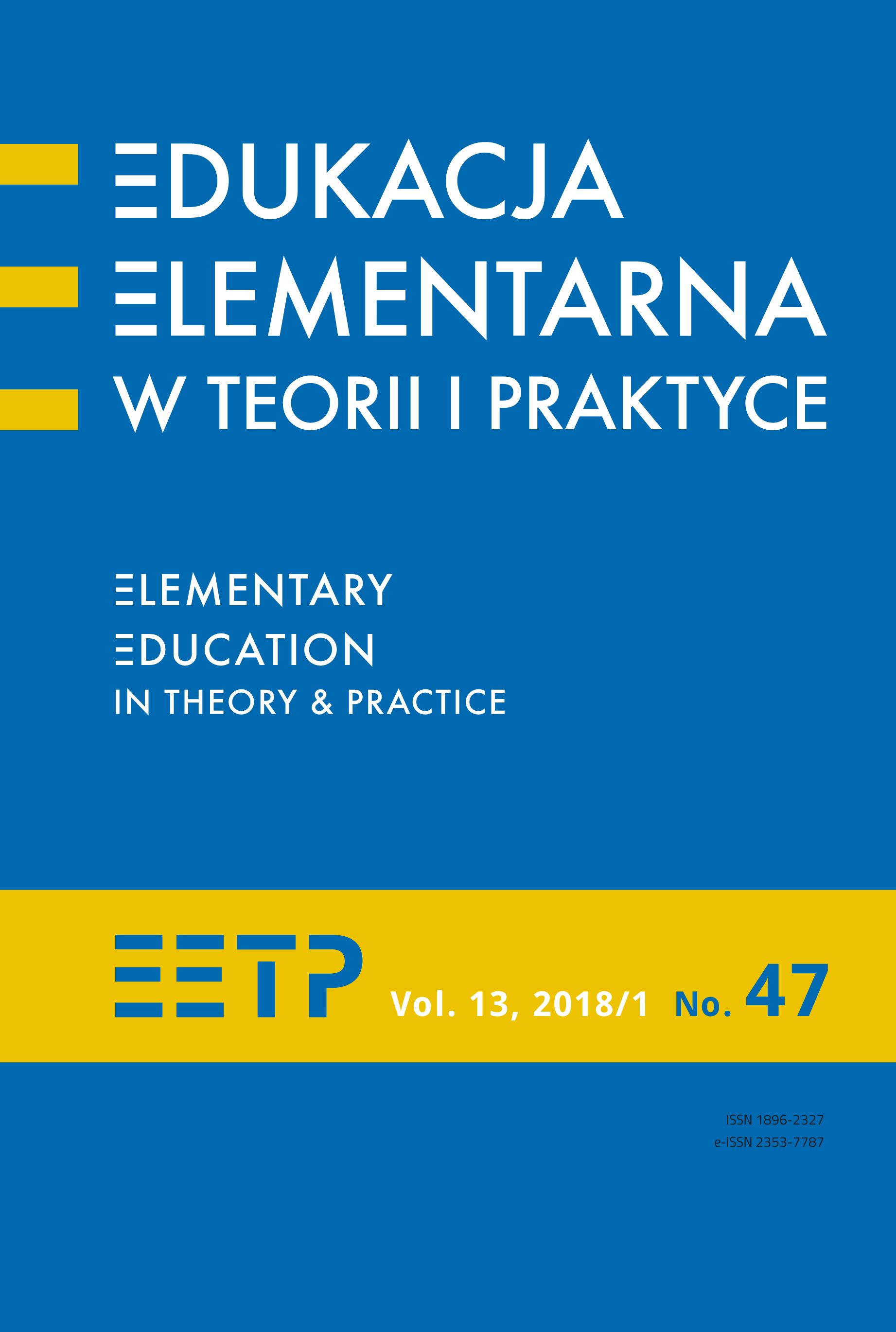Introduction
Abstrakt
The latest issue of “Elementary Education in Theory and Practice” is devoted to the pedagogical thought of Maria Montessori, one of the greatest innovators of 20th century education. Her pedagogical concepts, although designed over 100 years ago, seem to carry an unusual freshness, originality and intellectual depth, inspiring new generations of teachers, researchers and parents. As Clara Tornar has noticed, the unique cognitive potential of this pedagogy is based on interrelations between the method of scientific observation and its consequent development and improvement, based on rigidly precise scientific criteria – rationality and objectivity. M. Montessori perceived the classroom learning environment as an exclusive “psychological laboratory”. Not from the behaviourist perspective, however, not as a place where, in rigorously controlled conditions, a researcher is activating a stimulus to induce the proper, preplanned and expected reaction of the child. On the contrary, her vision of a psychological laboratory built and practiced in Casa dei Bambini was based on three cyclical phases, representing the methodology of research in action:
designing a learning environment prepared for exercising free choice – the place for empowering the child, triggering the free expression of the child’s psychological needs, inner potential and developmental tendencies;
methodically observing the child’s reactions to this environment and the conditions for free action;
and, finally, reorganizing and transforming this environment to make it serve better to the observed needs and possibilities of the child, to make the stimuli included in this environment facilitators for the child’s development, for constructing his/her own developmental potential.
Copyright (c) 2018 Edukacja Elementarna w Teorii i Praktyce

Utwór dostępny jest na licencji Creative Commons Uznanie autorstwa – Bez utworów zależnych 4.0 Międzynarodowe.
1. Autor zgłaszając swój artykuł oświadcza, że jest Autorem artykułu (zwanego dalej Utworem) i:
- przysługują mu wyłączne i nieograniczone prawa autorskie do Utworu,
- jest uprawniony/a do rozporządzania prawami autorskimi do Utworu.
Oświadcza, że nie narusza praw autorskich osób trzecich i praw prawnych.
Oświadcza, że nie występuje żaden konflikt interesów.
2. Udziela Uniwersytetowi Ignatianum w Krakowie nieodpłatnej, niewyłącznej, nieograniczonej terytorialnie licencji do korzystania z Utworu na następujących polach eksploatacji:
- utrwalania utworu w formie papierowej, a także na nośniku cyfrowym lub magnetycznym;
- zwielokrotnienia utworu dowolną techniką, bez ograniczenia ilości wydań i liczby egzemplarzy;
- rozpowszechniania utworu i jego zwielokrotnionych egzemplarzy na jakimkolwiek nośniku, w tym wprowadzenia do obrotu, sprzedaży, użyczenia, najmu;
- wprowadzenia utworu do pamięci komputera;
- rozpowszechniania utworu w sieciach informatycznych, w tym w sieci Internet;
- publicznego wykonania, wystawienia, wyświetlenia, odtworzenia oraz nadawania i reemitowania, a także publicznego udostępniania utworu w taki sposób, aby każdy mógł mieć do niego dostęp w miejscu i czasie przez siebie wybranym;
- w zakresie praw zależnych do Utworu, obejmujących w szczególności prawo do dokonania koniecznych zmian w Utworze, wynikających z opracowania redakcyjnego i metodycznego, a także do dokonania tłumaczenia Utworu na języki obce.
Udzielenie licencji następuje z chwilą przekazania Utworu na rzecz Uniwersytetowi Ignatianum w Krakowie. Uniwersytet Ignatianum w Krakowie jest uprawniony do udzielania dalszych sublicencji do Utworu, w zakresie udzielonego prawa. Licencja jest ograniczona czasowo i zostaje udzielona na okres 15 lat, licząc od daty jej udzielenia.
Wyraża się zgodę i zachęca autorów do publikacji ich tekstu w Internecie (np. w repozytorium instytucji lub na jej stronie internetowej) przed lub podczas procesu składania tekstu jako, że może to prowadzić do korzystnych wymian oraz wcześniejszego i większego cytowania opublikowanego tekstu (Patrz The Effect of Open Access). Zalecamy wykorzystanie dowolnego portalu stowarzyszeń badawczych z niżej wymienionych:




